#mobile health market
Explore tagged Tumblr posts
Link
#market research future#digital healthcare market#digital health market#mhealth market#mobile health market
0 notes
Link
#market research future#digital healthcare market#digital health market#mhealth market#mobile health market
0 notes
Link
#market research future#digital healthcare market#digital health market#mhealth market#mobile health market
0 notes
Link
#market research future#digital healthcare market#digital health market#mhealth market#mobile health market
0 notes
Text
3 in 1 Wireless Charger Stand Magnetic For iPhone 12 13 14 15 Fast Charging Station for Apple Watch 9 8 7 6 5 Airpods 2 3 Pro
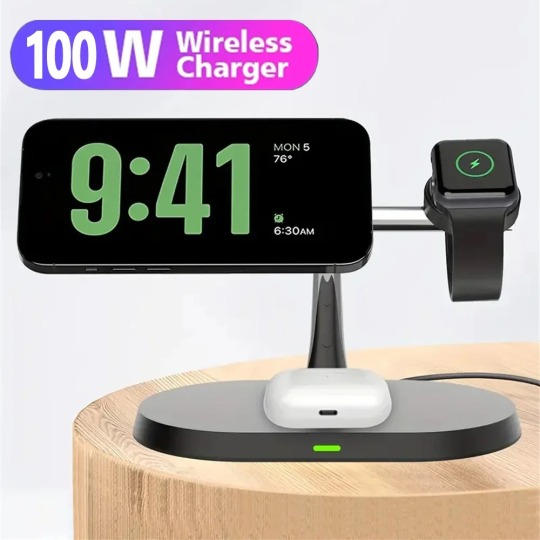
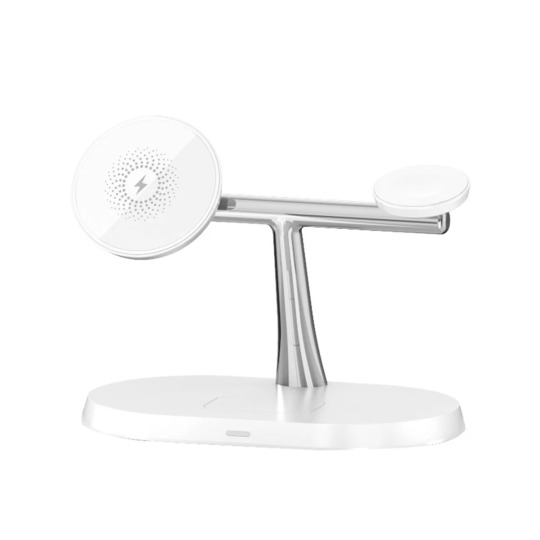
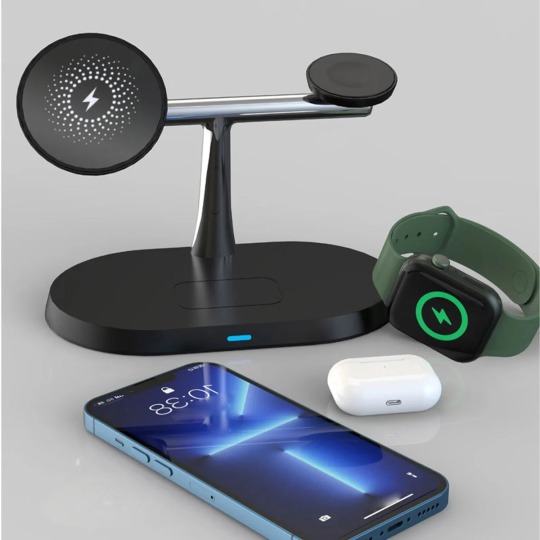
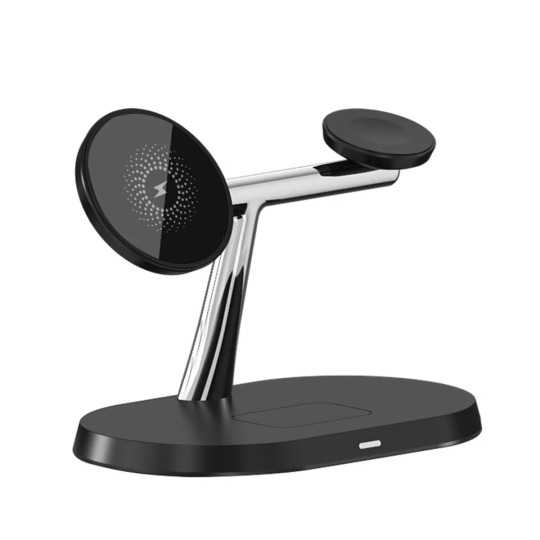
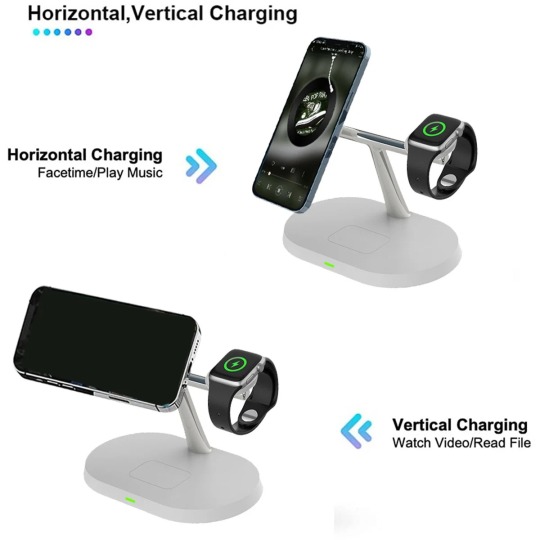

#Sports#Health & Beauty#Art#Martial Arts#Shopping#E-Marketing#Online Shopping#Sale#Best Product#Best Seller#Ali Express#Amazon#Laughter#Discounts#Special Offer#Free#Canada#America#Europe#Free Shipping#Mobile Accessories#Mobile Charger#Smart Watch Charger#Headphone Charger#iPhone Mobile#Wireless Charger
5 notes
·
View notes
Text
Palo Alto shares helped by contract news, Abbott Labs braces for lawsuit ruling
Every weekday, the CNBC Investing Club with Jim Cramer releases the Homestretch — an actionable afternoon update, just in time for the last hour of trading on Wall Street. Markets: Wall Street is under pressure Thursday, led to the downside by the tech-heavy Nasdaq Composite , which dropped more than 2%. The S & P 500 is down more than 1%, while the Dow Jones Industrial Average lost about 260…
#Abbott Laboratories#Amazon.com Inc#Apple Inc#Breaking News: Markets#Breaking News: Technology#business news#Chevron Corp#Coterra Energy Inc#CrowdStrike Holdings Inc#Cybersecurity#Dow Jones Industrial Average#ETFMG Prime Cyber Security ETF#Exxon Mobil Corp#Health care industry#Homestretch#Intel Corp#Investment strategy#Jim Cramer#Juniper Networks Inc#LyondellBasell Industries NV#Markets#Meta Platforms Inc#Microsoft Corp#NASDAQ Composite#Palo Alto Networks Inc#S&P 500 Index#Technology#United States Steel Corp
0 notes
Text
Mobile Health (mhealth) Solutions Market Size, Share, Trends, Opportunities, Key Drivers and Growth Prospectus
"Mobile Health (mhealth) Solutions Market – Industry Trends and Forecast to 2029
Global Mobile Health (mhealth) Solutions Market, By Connected Devices (Glucose and Blood Pressure Monitor, Peak Flow Meter, Pulse Oximeter), Apps (Weight Loss, Women Health, Diabetes Management, Mental Health), Services (Remote Monitoring, Consultation) – Industry Trends and Forecast to 2029
Access Full 350 Pages PDF Report @
**Segments**
- **Service Type**: The mHealth solutions market can be segmented based on service type into monitoring services, diagnostic services, treatment services, wellness and prevention services, and others. Monitoring services include wearable devices and mobile apps for tracking health metrics. Diagnostic services encompass remote consultations and virtual diagnostics. Treatment services involve telemedicine and teleconsultation for medical treatment. Wellness and prevention services focus on fitness apps, diet trackers, and mental health support.
- **Platform**: Based on platform, the market can be categorized into mobile apps and web-based solutions. Mobile apps are designed for smartphones and tablets, offering convenience and accessibility to users. Web-based solutions are accessed through internet browsers on various devices, providing a wider reach and compatibility across different platforms.
- **End-User**: The mHealth solutions market can also be segmented by end-user, including healthcare providers, patients, and healthcare payers. Healthcare providers utilize mHealth solutions for remote patient monitoring, telemedicine consultations, and electronic health records management. Patients benefit from mHealth apps for self-care, medication reminders, and accessing medical information. Healthcare payers use mHealth solutions for claims processing, insurance management, and data analytics.
**Market Players**
- **Apple Inc.**: Apple is a prominent player in the mHealth solutions market with offerings like the Health app and Apple Watch, which enable users to track health data and access medical information conveniently.
- **Google LLC**: Google's mHealth initiatives include Google Fit for fitness tracking, and partnerships with healthcare providers for data integration and telehealth services.
- **Fitbit, Inc.**: Fitbit specializes in wearable health devices that monitor fitness metrics, sleep patterns, and heart rate, catering to wellness and prevention services in the mHealth market.
- **Cerner Corporation**: Cerner provides healthcare technology solutions including electronic health records (EHR) and telemedicine platforms, supporting healthcare providers in delivering mHealth services.
- **Zoetis Inc.**: Zoetis focuses on mHealth solutionsZoetis Inc. is a key player in the mHealth solutions market, primarily focusing on providing innovative solutions for the healthcare industry. As a leading animal health company, Zoetis leverages its expertise to develop mHealth tools tailored to veterinary professionals, pet owners, and livestock producers. The company's commitment to advancing animal health through technology has positioned it as a significant contributor to the evolution of mHealth applications in the veterinary sector.
Zoetis' mHealth solutions encompass a wide range of offerings aimed at improving the well-being of animals and enhancing the efficiency of veterinary care. Through the development of mobile apps, wearable devices, and data analytics platforms, Zoetis empowers veterinarians to monitor animal health, track medication schedules, and streamline communication with pet owners. These tools not only facilitate remote monitoring and teleconsultations but also enable real-time access to critical health information, leading to more proactive and personalized veterinary care.
In addition to serving the veterinary community, Zoetis caters to pet owners seeking convenient and reliable ways to manage their pets' health and wellness. By providing user-friendly mobile apps for tracking vaccination records, scheduling appointments, and receiving personalized care recommendations, Zoetis enhances the overall pet ownership experience. This direct engagement with end-users fosters stronger relationships between pet owners and veterinarians, ultimately leading to better health outcomes for companion animals.
Furthermore, Zoetis recognizes the importance of mHealth solutions in the agricultural sector, where the health and productivity of livestock play a crucial role in food production systems. Through digital platforms that enable remote monitoring of livestock health, disease surveillance, and herd management, Zoetis empowers livestock producers to make informed decisions that optimize animal welfare and farm productivity. By leveraging data-driven insights and predictive analytics, Zoetis equips livestock producers with the tools necessary to mitigate disease outbreaks, improve breeding practices, and ensure sustainable agricultural practices.
Overall, Zoetis' dedication to advancing mHealth solutions for the veterinary and livestock industries underscores its commitment**Global Mobile Health (mHealth) Solutions Market Analysis:**
- **Connected Devices**: The mHealth solutions market is witnessing significant growth in connected devices segment, including glucose and blood pressure monitors, peak flow meters, and pulse oximeters. These devices empower users to track vital health metrics in real-time, enabling proactive health management and remote monitoring capabilities.
- **Apps**: The market is also driven by a diverse range of mHealth apps catering to specific health needs such as weight loss, women's health, diabetes management, and mental health. These apps provide users with personalized health solutions, including fitness tracking, symptom management, medication reminders, and virtual consultations, contributing to the continued expansion of the mHealth market.
- **Services**: Remote monitoring and consultation services are key components of the mHealth solutions market, offering healthcare providers and patients with seamless connectivity and access to healthcare resources. The adoption of telemedicine platforms and remote monitoring tools has surged, allowing for efficient healthcare delivery, improved patient outcomes, and cost-effective healthcare solutions.
The global mHealth solutions market is forecasted to experience robust growth driven by the increasing prevalence of chronic diseases, rising adoption of smartphones and wearable devices, and growing demand for remote healthcare services. Technological advancements in connected devices and apps, coupled with the expansion of telemedicine services, are expected to fuel market growth further. Additionally, the emphasis on preventive healthcare and wellness initiatives is shaping the mHealth landscape, with a focus on personalized health solutions and patient-centric care models.
The market
Table of Contents: Mobile Health (mhealth) Solutions Market
1 Introduction
2 Global Mobile Health (mhealth) Solutions Market Segmentation
3 Executive Summary
4 Premium Insight
5 Market Overview
6 Mobile Health (mhealth) Solutions Market, by Product Type
7 Mobile Health (mhealth) Solutions Market, by Modality
8 Mobile Health (mhealth) Solutions Market, by Type
9 Mobile Health (mhealth) Solutions Market, by Mode
10 Mobile Health (mhealth) Solutions Market, by End User
12 Mobile Health (mhealth) Solutions Market, by Geography
12 Mobile Health (mhealth) Solutions Market, Company Landscape
13 Swot Analysis
14 Company Profiles
Countries Studied:
North America (Argentina, Brazil, Canada, Chile, Colombia, Mexico, Peru, United States, Rest of Americas)
Europe (Austria, Belgium, Denmark, Finland, France, Germany, Italy, Netherlands, Norway, Poland, Russia, Spain, Sweden, Switzerland, United Kingdom, Rest of Europe)
Middle-East and Africa (Egypt, Israel, Qatar, Saudi Arabia, South Africa, United Arab Emirates, Rest of MEA)
Asia-Pacific (Australia, Bangladesh, China, India, Indonesia, Japan, Malaysia, Philippines, Singapore, South Korea, Sri Lanka, Thailand, Taiwan, Rest of Asia-Pacific)
Objectives of the Report
To carefully analyze and forecast the size of the Mobile Health (mhealth) Solutions market by value and volume.
To estimate the market shares of major segments of the Mobile Health (mhealth) Solutions
To showcase the development of the Mobile Health (mhealth) Solutions market in different parts of the world.
To analyze and study micro-markets in terms of their contributions to the Mobile Health (mhealth) Solutions market, their prospects, and individual growth trends.
To offer precise and useful details about factors affecting the growth of the Mobile Health (mhealth) Solutions
To provide a meticulous assessment of crucial business strategies used by leading companies operating in the Mobile Health (mhealth) Solutions market, which include research and development, collaborations, agreements, partnerships, acquisitions, mergers, new developments, and product launches.
Browse Trending Reports:
Mhealth Solutions Market Telecom Cloud Billing Market Industrial Cooking Fire Protection Systems Market Food Manufacturing Market Natural Surfactant Market Industrial Networking Solutions Market Facility Management Market Cathode Materials Market High Purity Gases Market Cassava Starch Market Embedded Connectivity Solutions Market Central Fill Pharmacy Automation Market Rfid In Healthcare Market Virtual Pipeline Systems Market Fiberoptic Phototherapy Equipment Market Suture Passer Market Baby Apparel Market Peanut Allergy Treatment Market
About Data Bridge Market Research:
Data Bridge set forth itself as an unconventional and neoteric Market research and consulting firm with unparalleled level of resilience and integrated approaches. We are determined to unearth the best market opportunities and foster efficient information for your business to thrive in the market. Data Bridge endeavors to provide appropriate solutions to the complex business challenges and initiates an effortless decision-making process.
Contact Us:
Data Bridge Market Research
US: +1 614 591 3140
UK: +44 845 154 9652
APAC : +653 1251 975
Email: [email protected]"

0 notes
Text
#land survey app#offline survey app#quality control app#survey mobile app#mobile form app#offline surveys#collect mobile data#health and safety audits#quality control checklist app#forms mobile app#Market Research Surveys
0 notes
Text
Digital Biomarkers Market is Estimated to Witness High Growth Owing to Rising Demand for Remote Healthcare

The digital biomarkers market has seen significant growth in recent years. Digital biomarkers, also known as biomarkers that are objectively measured and evaluated through digital sensors or records as indicators of a biological state. Some examples of digital biomarkers include heart rate variability, physical activity levels, sleep patterns, typing cadence, and the swipe speed on smartphone screens. The growing adoption of digital health technologies has increased the use of these digital biomarkers. Wearable devices and smartphone apps can track individuals' digital biomarkers and share the information with healthcare providers for remote monitoring of health conditions. Remote monitoring solutions provide convenience to patients and reduce the burden on healthcare systems. The global digital biomarkers market was valued at US$ 2.03 Bn in 2022 and is forecast to reach a value of US$ 22.28 Bn by 2030 at a CAGR of 34.1% between 2023 and 2030.
Key Takeaways Key players operating in the digital biomarkers market are Purina Mills LLC, Nutreco N.V., Roquette Freres S.A., Evonik Industries A G, Charoen Pokphand Foods PLC, Alltech Inc., Associated British Foods Plc., Koninklijke DSM NV, BASF SE, ACI Godrej Agrovet Private Limited. Many of these players are investing in partnerships and acquisitions for product development and portfolio expansion focused on digital solutions. Some of the key opportunities in the market include growing demand for mHealth and remote patient monitoring solutions, increasing adoption of digital biomarkers in clinical trials as well as rising popularity of wearable devices collecting Digital Biomarkers Market Growth . Geographically, North America dominates the global digital biomarkers market due to advancements in digital health technologies and supportive initiatives for digital healthcare in countries like the US. However, Asia Pacific is expected to witness the highest growth rate over the forecast period with increasing adoption of digital health solutions in developing countries like India and China. Market Drivers The increasing demand for remote healthcare monitoring solutions is a key driver boosting the digital biomarkers market. Patients prefer remote monitoring as it saves travel costs and time spent visiting clinicians frequently. This has increased the use of digital biomarkers collected via smartphones and wearables to monitor health conditions remotely. The growing prevalence of chronic diseases worldwide is also driving the need for digital care through effective monitoring of patients. Furthermore, digital biomarkers find applications in clinical trials through digital endpoints and decentralized trials, thereby supporting research activities. Overall, the advent of digital health is transforming care models and favoring the digital biomarkers industry.
PEST Analysis Political: Advancement in digital innovations and acceptance of technologies have paved the way for digital biomarkers market to grow. Governments worldwide are supporting initiatives for remote health monitoring to lower healthcare costs which is fueling the market growth. Economic: Overall growth of healthcare IT sector and growing investment by providers in digital technologies is driving the digital biomarkers market. Adoption of digital tools allows payers and providers to reduce manual documentation tasks and lower operational costs. Social: Increased internet and smartphone penetration are allowing wider acceptance of self monitoring tools. Tech savvy population especially young adults are willing to use digital solutions to track health data and share with doctors for better care. Technological: Availability of low cost sensors, connectivity through apps and cloud storage facilities are major technological factors driving the digital biomarkers market. Advancements in AI, machine learning are making analysis of biomarker data more reliable, swift and easy. The digital biomarkers market in terms of value is concentrated majorly in North America and Western Europe. North America holds the largest share due to strong technical infrastructure and established healthcare industry in the region. Advancements done by the US based companies also aids growth. Asia Pacific is recognized as the fastest growing regional market for digital biomarkers. Rising spending capabilities, growing preventive healthcare approach and increasing prevalence of chronic diseases are driving adoption. Countries like India, China and Japan are focusing on building telehealth platforms to tap growth opportunities. Expanding middle class population and improving connectivity in APAC further supports the market expansion.
Get more insights on Digital Biomarkers Market
About Author:
Ravina Pandya, Content Writer, has a strong foothold in the market research industry. She specializes in writing well-researched articles from different industries, including food and beverages, information and technology, healthcare, chemical and materials, etc. (https://www.linkedin.com/in/ravina-pandya-1a3984191)
#Coherent Market Insights#Digital Biomarkers Market#Digital Biomarkers#Health Data#Wearable Devices#Remote Monitoring#Mobile Health#Mhealth#Electronic Health Records#HER
1 note
·
View note
Text
Mobile Health Vehicle Market: Forthcoming Trends and Share Analysis by 2030

The Global Mobile Health Vehicle Market size is expected to grow from USD 230.85 Million in 2022 to USD 367.94 Million by 2030, at a CAGR of 6 % during the forecast period (2023-2030).
Mobile Health Vehicles is a personalized healthcare clinic that uses integrated technology to make healthcare accessible to a larger population. According to the World Health Organization, they deploy mobile health vehicles to underprivileged areas that are cut off from medical facilities. The WHO also reports that the demand for these vehicles continues to grow due to numerous advantages. Mobile Health Vehicle is a response to a population living in remote and difficult areas, where their communities have been disconnected from mainstream services due to geographic and climatic conditions.
The concept of mobile hospitals isn't entirely new, and shows just how necessary its use is, from military field hospitals to charities or large disaster tent cities. While these cases can be reduced to mobile walkers with limited scope for outpatient medical activities, a full-featured hospital and Mobile health care is a highly complex system that far exceeds a compact target system. The Mobile health vehicles provide urgent care, preventive health screenings, and initiate chronic disease management.
Get Full PDF Sample Copy of Report: (Including Full TOC, List of Tables & Figures, Chart) @
https://introspectivemarketresearch.com/request/15762
Updated Version 2024 is available our Sample Report May Includes the:
Scope For 2024
Brief Introduction to the research report.
Table of Contents (Scope covered as a part of the study)
Top players in the market
Research framework (structure of the report)
Research methodology adopted by Worldwide Market Reports
Leading players involved in the Mobile Health Vehicle Market include:
MedCoach, Matthews Specialty Vehicle, Mobile Specialty Vehicles, Summit Bodyworks, LDV, Startracks.org,Inc, Legacy, TOUTENKAMION, ADI MOBILE HEALTH, Odulair, Imagi-Motive, Mobile Healthcare Facilitie other Major Players.
Moreover, the report includes significant chapters such as Patent Analysis, Regulatory Framework, Technology Roadmap, BCG Matrix, Heat Map Analysis, Price Trend Analysis, and Investment Analysis which help to understand the market direction and movement in the current and upcoming years.
If You Have Any Query Mobile Health Vehicle Market Report, Visit:
https://introspectivemarketresearch.com/inquiry/15762
Segmentation of Mobile Health Vehicle Market:
By Type
Van
Truck
Others
By Application
Mobile Clinic
Mobile Dental
Mobile Mammography
Others
Market Segment by Regions: -
North America (US, Canada, Mexico)
Eastern Europe (Bulgaria, The Czech Republic, Hungary, Poland, Romania, Rest of Eastern Europe)
Western Europe (Germany, UK, France, Netherlands, Italy, Russia, Spain, Rest of Western Europe)
Asia Pacific (China, India, Japan, South Korea, Malaysia, Thailand, Vietnam, The Philippines, Australia, New Zealand, Rest of APAC)
Middle East & Africa (Turkey, Bahrain, Kuwait, Saudi Arabia, Qatar, UAE, Israel, South Africa)
South America (Brazil, Argentina, Rest of SA)
Highlights from the report:
Market Study: It includes key market segments, key manufacturers covered, product range offered in the years considered, Global Mobile Health Vehicle Market, and research objectives. It also covers segmentation study provided in the report based on product type and application.
Market Executive Summary: This section highlights key studies, market growth rates, competitive landscape, market drivers, trends, and issues in addition to macro indicators.
Market Production by Region: The report provides data related to imports and exports, revenue, production and key players of all the studied regional markets are covered in this section.
Mobile Health Vehicle Market Profiles of Top Key Competitors: Analysis of each profiled Roll Hardness Tester market player is detailed in this section. This segment also provides SWOT analysis of individual players, products, production, value, capacity, and other important factors.
If you require any specific information that is not covered currently within the scope of the report, we will provide the same as a part of the customization.
Acquire This Reports: -
https://introspectivemarketresearch.com/checkout/?user=1&_sid=15762
About us:
Introspective Market Research (introspectivemarketresearch.com) is a visionary research consulting firm dedicated to assisting our clients to grow and have a successful impact on the market. Our team at IMR is ready to assist our clients to flourish their business by offering strategies to gain success and monopoly in their respective fields. We are a global market research company, that specializes in using big data and advanced analytics to show the bigger picture of the market trends. We help our clients to think differently and build better tomorrow for all of us. We are a technology-driven research company, we analyse extremely large sets of data to discover deeper insights and provide conclusive consulting. We not only provide intelligence solutions, but we help our clients in how they can achieve their goals.
Contact us:
Introspective Market Research
3001 S King Drive,
Chicago, Illinois
60616 USA
Ph no: +1-773-382-1047
Email: [email protected]
#Mobile Health Vehicle#Mobile Health Vehicle Market#Mobile Health Vehicle Market Size#Mobile Health Vehicle Market Share#Mobile Health Vehicle Market Growth#Mobile Health Vehicle Market Trend#Mobile Health Vehicle Market segment#Mobile Health Vehicle Market Opportunity#Mobile Health Vehicle Market Analysis 2023
0 notes
Link
#market research future#digital healthcare market#digital health market#mhealth market#mobile health market
0 notes
Link
#market research future#digital healthcare market#digital health market#mhealth market#mobile health market
0 notes
Text
How Mobile Marketing Benefits Adult Medicine Practices

In the healthcare environment, where smartphones and tablets are ubiquitous, mobile marketing has emerged as an essential channel for engaging patients. Healthcare providers are adjusting their marketing strategies to engage patients on their mobile devices, in response to the identified shift in patient behavior toward such platforms. This advancement offers a distinct prospect to advocate for health while mobile, granting individuals the ability to proactively oversee their welfare in a rapidly changing environment.
Utilizing the portability and ease of access of mobile technology to provide patients with timely healthcare information constitutes mobile marketing for on-the-go health promotion. Mobile marketing empowers adult physicians to accommodate the requirements of mobile, hectic individuals by facilitating appointment scheduling, access to medical records, and provision of personalized health advice. Organizations can promote healthier lifestyles among their patient population by adopting mobile marketing strategies, which can also increase patient engagement and health outcomes.
Healthcare's Adoption of Mobile Marketing

As an increasing number of patients consult smartphones and tablets for healthcare information, the prevalence of mobile devices in the medical field has increased. This transformation highlights the imperative for an adult physician to enhance their online visibility to accommodate mobile devices, guaranteeing that patients have effortless access to critical data and services from any location. In the pursuit of connecting with patients while they are mobile, marketing strategies and websites that are optimized for mobile use have evolved into indispensable instruments, ensuring smooth navigation and operation on a multitude of screens and devices.
It is indisputable that mobile-friendly websites are crucial in an era when patients increasingly depend on these devices to access healthcare information. Patients can conveniently access information regarding healthcare services, schedule appointments, and communicate with providers via these websites, which are optimized for smartphones and tablets to provide an intuitive experience. In addition, by delivering personalized content and services directly to patients' mobile devices, healthcare providers can effectively engage with them through mobile marketing strategies including targeted advertising, mobile applications, and SMS messaging. Healthcare providers can optimize patient engagement, enhance care accessibility, and ultimately achieve superior health outcomes by adopting mobile marketing strategies.
Addressing Patient Needs at Anytime
The health challenges and requirements of adults necessitate healthcare solutions that are both flexible and readily available. Adults frequently have limited time to promptly attend to their health concerns due to the demands of juggling work, family obligations, and other commitments. Such challenges include extended work hours, protracted commutes, and hectic schedules, all of which contribute to increased stress levels and a tendency to neglect preventive healthcare measures. As a consequence, timely medical care becomes more difficult to obtain. To tailor services to the specific needs of busy adults and advocate for health solutions that accommodate their hectic lifestyles, healthcare providers must acknowledge and understand these dynamics.
For individuals with demanding schedules who place a premium on adaptability, accessibility, and convenience are vital in the healthcare industry. These include telemedicine access, extended clinic hours, walk-in appointments, and streamlined administrative procedures. Further, remote access to healthcare information via mobile devices is vital for efficient health management while traveling. To empower busy adults to prioritize their health amidst their hectic lifestyles and encourage preventive care measures that seamlessly integrate into their schedules, healthcare providers must acknowledge and cater to their needs through approaches such as flexible scheduling, telemedicine utilization, and comprehensive online resources.
Strategic Utilization of Mobile Marketing
To effectively promote adult medicine services in the current digital environment, it is critical to implement mobile marketing strategies. Healthcare providers have the opportunity to establish connections with patients on their preferred digital devices—smartphones and tablets—by customizing their marketing strategies to mobile platforms. The effective communication of healthcare information and services to patients who are constantly on the move requires the implementation of numerous strategies, such as mobile-friendly websites, responsive design, and mobile applications.
Mobile marketing is predicated on the necessity for websites to be optimized for mobile devices, thereby facilitating pertinent information retrieval and navigation for patients. To optimize website functionality across various screen sizes and devices, the responsive design accommodates the varied browsing behaviors and preferences of patients who are constantly on the move. Moreover, mobile applications facilitate appointment scheduling, health resource retrieval, and communication with healthcare providers—all from the user's palm—providing a more interactive and personalized method of patient engagement. By adopting and incorporating these mobile marketing strategies, healthcare providers can effectively cater to the changing demands of patients who desire mobile healthcare solutions that are both convenient and easily accessible.
How Local SEO Boosts Your Visibility
Through increasing its visibility and recruiting nearby patients, local SEO is crucial to the success of adult treatment facilities. Optimizing for local SEO guarantees prominent visibility in pertinent search results, thereby facilitating the discovery and interaction of healthcare services by patients in the vicinity, given the growing dependence on online search engines for locating such services. By directing targeted traffic to the practice's website, this localized approach to SEO ultimately increases conversion rates and patient appointments, in addition to increasing visibility.
Achieving optimal results with local SEO requires the strategic implementation of regional keywords, including "adult medicine near me." By targeting individuals who are actively pursuing the services of the business in their immediate vicinity, these location-specific keywords augment search visibility. They can enhance their positions in local search results and guarantee prominent visibility for prospective patients seeking pertinent services in the vicinity by effortlessly integrating these keywords into website content, meta tags, and business listings. By strategically targeting potential clients who are actively pursuing their services in the local area, this method of SEO not only improves visibility but also significantly enhances the probability of attracting such individuals.
Boost Your Practice with a Digital Marketing Agency

When it comes to optimizing their mobile marketing efforts, working with the best SEO company in Long Island offers some advantages. These firms possess expertise in local search engine optimization (SEO) and digital marketing tactics, which empowers medical practices to enhance their online presence and appeal to a more extensive clientele from the nearby vicinity. Skilled SEO teams design customized strategies to enhance the practice's mobile visibility, guaranteeing high rankings in relevant search results, by capitalizing on their knowledge of industry trends and optimal methodologies.
It efficiently reaches its intended audience and promotes health while on the move with the aid of a skilled SEO team. These professionals adeptly incorporate relevant search terms into the practice's digital content and marketing endeavors using thorough keyword research and optimization techniques. In addition, search engine optimization specialists facilitate effortless access to vital healthcare information for mobile patients by optimizing the practice's website for mobile devices, thereby improving the user experience and accessibility. Adult medication practices can interact with patients in real-time and offer them personalized health resources and services by utilizing seasoned SEO teams to implement targeted mobile marketing strategies, including location-based advertising and mobile app development.
Summary of The Advantages of Mobile Marketing for Adult Clinics
The importance of mobile marketing in promoting health while on the move was thus highlighted. Improve patient engagement and accessibility to healthcare information and services across all locations by implementing effective strategies such as mobile-friendly websites, responsive design, local SEO optimization, and strategic partnerships with reputable digital marketing firms.
Mobile marketing has established itself as an essential component of modern healthcare marketing strategies, serving as more than a transient trend. Mobile marketing strategies are essential for healthcare organizations to maintain competitiveness and effectively address patient demands, given the growing dependence of patients on mobile devices for healthcare-related tasks. Practices can promote healthier lifestyles among their patient population and increase patient engagement, health outcomes, and overall well-being by placing mobile marketing initiatives at the forefront of their strategies. This underscores the critical nature of adopting mobile marketing as an essential approach to delivering patient-centric care in the contemporary digital environment.
0 notes
Text
It would be fun (for me, Serot is exhausted) if his boat got raided by pirates from Halruua to Qudra. Specifically ones from the Isle of Gardens who presently have an alliance with Meket. Thus they pay special attention to him, the only Meketi on the ship. Somehow it comes out he’s THE Serot, and suddenly he’s their guest of honor, being feasted before they sail him garlanded to Meket. The Deathless Saint means little to them, but this will do wonders for their alliance.
#OOC / HOLLY.#MOBILE.#well he’d mean something to them if they were primarily Soshist#I haven’t decided#either way. Serot vc: I feel like cattle trussed up for market#he’s accustomed to some fanfare. he can do the feasting and even enjoys it#but being literally paraded through the streets#while politicians already plan how they’ll turn this to their advantage#after he’s been traveling for AGES and his health is wavering and he has no clue still what he’s gonna do about Meresankh#and he’s probably still quarreling with Refhremmit —#he’s so tired he wanted to keep a low profile skdhdkdhd
0 notes
Link
#market research future#healthcare mobility solutions#healthcare management#hospital administration#health mobility
0 notes
Text
Nurturing Patient Engagement: Healthcare Solutions Unleashed
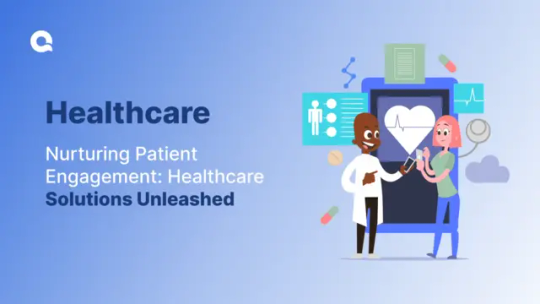
Introduction
In the ever-evolving landscape of healthcare, patient engagement stands as a cornerstone for improved outcomes and enhanced overall well-being. The advent of healthcare solutions has unleashed a transformative wave, providing innovative tools and technologies to foster meaningful patient engagement. This blog explores the multifaceted realm of patient engagement, delving into the current healthcare solutions that are reshaping the patient-provider relationship.
Understanding Patient Engagement
Defining Patient Engagement and Its Role in Healthcare
Patient engagement goes beyond the conventional doctor-patient interaction; it involves active participation, collaboration, and informed decision-making. Engaged patients are more likely to adhere to treatment plans, maintain healthier lifestyles, and experience improved health outcomes. Recognizing the pivotal role of patient engagement is crucial in designing effective healthcare solutions.
The Correlation Between Patient Engagement and Improved Health Outcomes
Numerous studies highlight the positive correlation between patient engagement and health outcomes. Engaged patients are better equipped to manage chronic conditions, recover from illnesses, and actively contribute to preventive care efforts. As healthcare shifts from a reactive to a proactive model, patient engagement becomes the linchpin for a healthier society.
The Current Landscape of Healthcare Solutions
Overview of Existing Healthcare Solutions Fostering Patient Engagement
The healthcare sector is witnessing a digital revolution, with an array of solutions designed to foster patient engagement. From mobile applications and telehealth platforms to wearables and IoT devices, these solutions are empowering patients with unprecedented access to their health information and facilitating more informed decision-making.
Technological Advancements Driving the Evolution of Healthcare Delivery
Technological advancements, such as artificial intelligence (AI) and machine learning, are reshaping healthcare delivery. AI-driven solutions analyze vast datasets to provide personalized insights, predict health risks, and offer tailored interventions. The integration of these technologies into healthcare solutions augurs a future where patient engagement is more precise, proactive, and patient-centered.
Key Components of Effective Patient Engagement Solutions
Seamless and User-Friendly Interfaces
Effective patient engagement solutions prioritize user experience. Seamless and user-friendly interfaces ensure that patients can easily navigate platforms, access their health information, and engage with healthcare services. Intuitive designs and clear communication enhance the usability of these solutions, catering to diverse patient demographics.
Integration of Health Data for Personalized Patient Interactions
The integration of health data is pivotal in delivering personalized patient interactions. Electronic Health Records (EHRs) and interoperable systems allow healthcare providers to access comprehensive patient histories, enabling informed decision-making. Patients, in turn, benefit from a holistic view of their health journey, facilitating more engaged and collaborative care.
Communication Tools Facilitating Doctor-Patient Engagement
Effective communication is at the heart of patient engagement. Healthcare solutions incorporate communication tools that facilitate seamless interactions between patients and providers. Secure messaging platforms, video consultations, and virtual check-ins enhance accessibility and foster ongoing dialogue, strengthening the patient-provider relationship.
Benefits of Robust Patient Engagement in Healthcare
Improved Patient Satisfaction and Trust
Robust patient engagement translates to improved patient satisfaction and trust. When patients feel actively involved in their care, experience clear communication, and have access to relevant health information, their overall satisfaction with healthcare services increases. Trust becomes the foundation for a collaborative and enduring relationship between patients and providers.
Enhanced Health Outcomes and Preventive Care
Engaged patients are more likely to adhere to treatment plans, leading to enhanced health outcomes. Moreover, patient engagement plays a crucial role in preventive care efforts. By empowering patients with knowledge about their health risks and preventive measures, healthcare solutions contribute to a proactive approach to well-being.
Efficient Healthcare Delivery and Resource Optimization
Efficient healthcare delivery is a byproduct of patient engagement solutions. Streamlined communication, remote monitoring, and proactive interventions contribute to optimized resource utilization. Providers can allocate resources more effectively, reduce hospital readmissions, and enhance the overall efficiency of healthcare delivery.
Empowering Patients Through Healthcare Apps
Mobile Apps as a Tool for Patient Empowerment
Mobile applications have become a powerful tool for patient empowerment. Healthcare apps offer a range of functionalities, from appointment scheduling and medication reminders to fitness tracking and telehealth services. The ubiquity of smartphones enables patients to participate in their care actively, access health information on the go, and engage with healthcare providers conveniently.
Features of Healthcare Apps Promoting Patient Engagement
The success of healthcare apps lies in their ability to promote sustained patient engagement. Features such as personalized health dashboards, medication adherence trackers, and secure messaging systems enhance the overall user experience. Gamification elements, educational content, and interactive tools further encourage patients to take an active role in managing their health.
Examples of Successful Healthcare Apps and Their Impact
Numerous healthcare apps have made a significant impact on patient engagement. For instance, apps offering remote monitoring for chronic conditions empower patients to proactively manage their health. Telehealth apps provide accessible virtual consultations, breaking down geographical barriers. These examples underscore the transformative potential of healthcare apps in nurturing patient engagement.
In the next section, we will explore the role of telehealth and virtual care in patient engagement, shedding light on the opportunities and challenges in the telehealth landscape.
Telehealth and Virtual Care in Patient Engagement
The Role of Telehealth in Fostering Remote Patient Engagement
Telehealth has emerged as a cornerstone in fostering remote patient engagement. The ability to connect with healthcare providers virtually transcends geographical boundaries, offering patients unprecedented access to medical expertise. Virtual consultations, remote monitoring, and telehealth platforms contribute to a patient-centric approach, ensuring that healthcare is tailored to the unique needs and circumstances of each individual.
Virtual Care Solutions for Increased Accessibility and Convenience
Virtual care solutions extend beyond traditional telehealth visits, encompassing a spectrum of services that enhance accessibility and convenience for patients. From virtual check-ins for routine follow-ups to asynchronous communication through secure messaging platforms, these solutions empower patients to engage with their healthcare providers on their terms. This flexibility is particularly beneficial for individuals with busy schedules or limited mobility.
Challenges and Opportunities in the Telehealth Landscape
While telehealth presents significant opportunities for patient engagement, it also comes with challenges. Issues related to digital literacy, access to technology, and disparities in internet connectivity need to be addressed to ensure equitable access to telehealth services. Additionally, concerns regarding the security and privacy of patient data in virtual environments underscore the importance of robust safeguards.
Personalized Health Plans and Patient Education
Tailoring Health Plans to Individual Patient Needs
Personalization is a key tenet of effective patient engagement solutions. Tailoring health plans to individual patient needs involves leveraging data insights to create personalized care strategies. Whether it’s adapting treatment plans for chronic conditions or providing targeted preventive care recommendations, personalized health plans contribute to more meaningful and impactful patient engagement.
The Importance of Patient Education in Driving Engagement
Patient education is a vital component of nurturing engagement. Informed patients are more likely to actively participate in their care, make informed decisions, and adhere to treatment plans. Healthcare solutions that prioritize patient education through accessible resources, interactive content, and clear communication contribute to a well-informed patient population, fostering a culture of proactive health management.
Strategies for Delivering Personalized Health Information
Effective delivery of personalized health information involves employing strategies that resonate with diverse patient populations. Utilizing multiple communication channels, including digital platforms, patient portals, and educational materials, ensures that information reaches patients in a format that suits their preferences. Incorporating feedback loops for continuous refinement of personalized health information delivery enhances the relevance and impact of these strategies.
Overcoming Challenges in Implementing Patient Engagement Solutions
Addressing Privacy and Security Concerns
Privacy and security are paramount in healthcare, especially when dealing with sensitive patient information. Robust encryption protocols, secure authentication mechanisms, and compliance with healthcare data protection regulations are essential in addressing privacy and security concerns. Transparent communication with patients about the measures in place builds trust and confidence in the safety of their health data.
Ensuring Accessibility for Diverse Patient Populations
Ensuring equitable access to patient engagement solutions requires addressing barriers related to accessibility. Healthcare providers must consider the diverse needs of their patient population, including those with disabilities or limited proficiency in digital technologies. Offering alternative modes of communication, language support, and user-friendly interfaces contributes to a more inclusive approach to patient engagement.
Staff Training and Cultural Shifts in Healthcare Practices
Successful implementation of patient engagement solutions necessitates comprehensive staff training and a cultural shift in healthcare practices. Healthcare professionals need to be proficient in utilizing digital tools and effectively communicating with patients through virtual platforms. Embracing a culture that prioritizes patient engagement as a collaborative effort between providers and patients fosters a proactive approach to healthcare delivery.
In the next section, we will explore the role of wearables and IoT devices in patient engagement, highlighting their potential to revolutionize remote monitoring and data collection.
The Role of Wearables and IoT in Patient Engagement
Wearable Devices Enhancing Patient Monitoring and Engagement
Wearable devices have emerged as powerful tools in enhancing patient engagement through continuous monitoring. From smartwatches tracking vital signs to fitness bands monitoring activity levels, wearables offer real-time data that patients and healthcare providers can leverage for proactive health management. The seamless integration of wearables into patient engagement solutions provides a holistic view of a patient’s well-being.
IoT Applications in Healthcare for Real-Time Data Collection
The Internet of Things (IoT) further expands the possibilities for patient engagement by facilitating real-time data collection from various healthcare devices. Connected sensors, smart home devices, and medical equipment contribute to a comprehensive data ecosystem. This real-time data flow enables healthcare providers to make timely interventions, adjust treatment plans, and collaborate with patients based on the most recent health insights.
Future Possibilities and Advancements in Wearable Technology
The future of wearable technology holds exciting possibilities for patient engagement. Advancements in sensor technology, miniaturization, and increased accuracy are on the horizon. Wearables may evolve to provide even more nuanced health metrics, enabling patients and healthcare providers to monitor and manage health conditions with unprecedented precision. The ongoing fusion of wearables with healthcare solutions promises a dynamic landscape of innovation.
Patient-Provider Communication and Collaboration
Facilitating Seamless Communication Between Patients and Healthcare Providers
Effective patient-provider communication lies at the heart of patient engagement. Healthcare solutions must prioritize seamless communication channels that allow patients to interact with their healthcare providers effortlessly. Secure messaging platforms, telehealth visits, and virtual check-ins create avenues for ongoing communication. Ensuring that these channels are user-friendly and accessible enhances the overall patient experience.
Collaborative Decision-Making and Shared Health Management
A shift toward collaborative decision-making empowers patients to actively participate in their health management. Healthcare solutions should facilitate shared decision-making between patients and providers, allowing for a personalized approach to care. Shared health management involves patients and providers working together to set goals, monitor progress, and make informed decisions about treatment plans, fostering a sense of shared responsibility.
Tools and Platforms Supporting Effective Communication Channels
The availability of tools and platforms supporting effective communication channels is pivotal for successful patient engagement. Patient portals, mobile apps, and integrated communication systems contribute to a cohesive healthcare ecosystem. These tools not only enable secure communication but also provide a centralized hub for accessing health information, scheduling appointments, and receiving important updates.
Measuring and Improving Patient Engagement
Metrics for Evaluating the Success of Patient Engagement Initiatives
Measuring the success of patient engagement initiatives requires the use of relevant metrics. Key performance indicators (KPIs) may include patient satisfaction scores, adherence to treatment plans, and the frequency of patient interactions with digital health platforms. By establishing clear metrics, healthcare providers can assess the impact of patient engagement solutions and identify areas for improvement.
Continuous Improvement Strategies Based on Patient Feedback
Patient feedback serves as a valuable source of information for continuous improvement. Gathering insights from patient experiences with healthcare solutions provides valuable perspectives on usability, effectiveness, and areas for enhancement. Establishing feedback loops and actively incorporating patient input into the iterative development of patient engagement solutions ensures that the evolving needs of patients are prioritized.
The Role of Data Analytics in Optimizing Patient Engagement Solutions
Data analytics plays a pivotal role in optimizing patient engagement solutions. By analyzing large datasets generated by patient interactions, healthcare providers can derive actionable insights. Data-driven decision-making enables the refinement of patient engagement strategies, personalization of healthcare interventions, and the identification of trends that can inform future developments in patient-centered care.
Future Trends in Patient Engagement Solutions
Emerging Technologies Shaping the Future of Patient Engagement
The landscape of patient engagement is poised for continued evolution with emerging technologies shaping its trajectory. Artificial intelligence (AI) and machine learning algorithms hold the potential to provide predictive insights into patient behaviors, anticipate health risks, and recommend personalized interventions. The ongoing integration of these technologies into patient engagement solutions anticipates a future where healthcare is increasingly tailored to individual needs.
Anticipated Developments in Healthcare Solutions and Patient Interactions
As technology advances, anticipated developments in healthcare solutions include more seamless integrations, interoperability across platforms, and enhanced user experiences. Patient interactions may evolve to encompass virtual reality (VR) applications, augmented reality (AR) features, and immersive experiences that further engage and empower patients in their healthcare journey.
The Evolving Role of AI and Machine Learning in Personalized Healthcare
The evolving role of AI and machine learning in personalized healthcare promises a future where patient engagement is predictive and adaptive. AI algorithms can learn from individual patient behaviors, preferences, and responses to interventions, tailoring healthcare recommendations with a level of precision that was previously unattainable. The convergence of AI with patient engagement solutions represents a transformative leap towards more individualized and effective healthcare.
Conclusion
In conclusion, the journey of nurturing patient engagement through healthcare solutions is a dynamic and evolving process. From the current landscape of wearables, IoT devices, and telehealth to the future possibilities offered by AI and machine learning, patient engagement solutions continue to redefine the way healthcare is delivered and experienced. As healthcare providers and technologists collaborate to enhance communication, personalized care, and leverage cutting-edge technologies, the vision of patient-centered, proactive healthcare is becoming a reality.
The ongoing commitment to addressing challenges, embracing innovation, and prioritizing patient-centric approaches ensures that patient engagement remains at the forefront of healthcare evolution. By unleashing the full potential of healthcare solutions, we embark on a journey toward a future where patient engagement is not just a concept but a transformative force shaping the well-being of individuals and communities.
#web design#digita marketing#ui ux design#web development#mobile app development#health management#technology
0 notes